Sweetened Oat Milk
Unsweetened Oat Milk
Flavored Oat Milk
Organic Oat Milk
Supermarkets
Online Retail
Health Food Stores
Convenience Stores
Households
Food Service
Beverage Industry
Food Production
Fortified Oat Milk
Barista Oat Milk
Plain Oat Milk
North America
Europe
South America
Asia Pacific
Middle East and Africa
North America Outlook (USD Billion, 2019-2035)
Oat Milk Market by Product Type
Sweetened Oat Milk
Unsweetened Oat Milk
Flavored Oat Milk
Organic Oat Milk
Oat Milk Market by Distribution Channel Type
Supermarkets
Online Retail
Health Food Stores
Convenience Stores
Oat Milk Market by End User Type
Households
Food Service
Beverage Industry
Food Production
Oat Milk Market by Formulation Type
Fortified Oat Milk
Barista Oat Milk
Plain Oat Milk
Oat Milk Market by Regional Type
US
Canada
US Outlook (USD Billion, 2019-2035)
Oat Milk Market by Product Type
Sweetened Oat Milk
Unsweetened Oat Milk
Flavored Oat Milk
Organic Oat Milk
Oat Milk Market by Distribution Channel Type
Supermarkets
Online Retail
Health Food Stores
Convenience Stores
Oat Milk Market by End User Type
Households
Food Service
Beverage Industry
Food Production
Oat Milk Market by Formulation Type
Fortified Oat Milk
Barista Oat Milk
Plain Oat Milk
CANADA Outlook (USD Billion, 2019-2035)
Oat Milk Market by Product Type
Sweetened Oat Milk
Unsweetened Oat Milk
Flavored Oat Milk
Organic Oat Milk
Oat Milk Market by Distribution Channel Type
Supermarkets
Online Retail
Health Food Stores
Convenience Stores
Oat Milk Market by End User Type
Households
Food Service
Beverage Industry
Food Production
Oat Milk Market by Formulation Type
Fortified Oat Milk
Barista Oat Milk
Plain Oat Milk
Europe Outlook (USD Billion, 2019-2035)
Oat Milk Market by Product Type
Sweetened Oat Milk
Unsweetened Oat Milk
Flavored Oat Milk
Organic Oat Milk
Oat Milk Market by Distribution Channel Type
Supermarkets
Online Retail
Health Food Stores
Convenience Stores
Oat Milk Market by End User Type
Households
Food Service
Beverage Industry
Food Production
Oat Milk Market by Formulation Type
Fortified Oat Milk
Barista Oat Milk
Plain Oat Milk
Oat Milk Market by Regional Type
Germany
UK
France
Russia
Italy
Spain
Rest of Europe
GERMANY Outlook (USD Billion, 2019-2035)
Oat Milk Market by Product Type
Sweetened Oat Milk
Unsweetened Oat Milk
Flavored Oat Milk
Organic Oat Milk
Oat Milk Market by Distribution Channel Type
Supermarkets
Online Retail
Health Food Stores
Convenience Stores
Oat Milk Market by End User Type
Households
Food Service
Beverage Industry
Food Production
Oat Milk Market by Formulation Type
Fortified Oat Milk
Barista Oat Milk
Plain Oat Milk
UK Outlook (USD Billion, 2019-2035)
Oat Milk Market by Product Type
Sweetened Oat Milk
Unsweetened Oat Milk
Flavored Oat Milk
Organic Oat Milk
Oat Milk Market by Distribution Channel Type
Supermarkets
Online Retail
Health Food Stores
Convenience Stores
Oat Milk Market by End User Type
Households
Food Service
Beverage Industry
Food Production
Oat Milk Market by Formulation Type
Fortified Oat Milk
Barista Oat Milk
Plain Oat Milk
FRANCE Outlook (USD Billion, 2019-2035)
Oat Milk Market by Product Type
Sweetened Oat Milk
Unsweetened Oat Milk
Flavored Oat Milk
Organic Oat Milk
Oat Milk Market by Distribution Channel Type
Supermarkets
Online Retail
Health Food Stores
Convenience Stores
Oat Milk Market by End User Type
Households
Food Service
Beverage Industry
Food Production
Oat Milk Market by Formulation Type
Fortified Oat Milk
Barista Oat Milk
Plain Oat Milk
RUSSIA Outlook (USD Billion, 2019-2035)
Oat Milk Market by Product Type
Sweetened Oat Milk
Unsweetened Oat Milk
Flavored Oat Milk
Organic Oat Milk
Oat Milk Market by Distribution Channel Type
Supermarkets
Online Retail
Health Food Stores
Convenience Stores
Oat Milk Market by End User Type
Households
Food Service
Beverage Industry
Food Production
Oat Milk Market by Formulation Type
Fortified Oat Milk
Barista Oat Milk
Plain Oat Milk
ITALY Outlook (USD Billion, 2019-2035)
Oat Milk Market by Product Type
Sweetened Oat Milk
Unsweetened Oat Milk
Flavored Oat Milk
Organic Oat Milk
Oat Milk Market by Distribution Channel Type
Supermarkets
Online Retail
Health Food Stores
Convenience Stores
Oat Milk Market by End User Type
Households
Food Service
Beverage Industry
Food Production
Oat Milk Market by Formulation Type
Fortified Oat Milk
Barista Oat Milk
Plain Oat Milk
SPAIN Outlook (USD Billion, 2019-2035)
Oat Milk Market by Product Type
Sweetened Oat Milk
Unsweetened Oat Milk
Flavored Oat Milk
Organic Oat Milk
Oat Milk Market by Distribution Channel Type
Supermarkets
Online Retail
Health Food Stores
Convenience Stores
Oat Milk Market by End User Type
Households
Food Service
Beverage Industry
Food Production
Oat Milk Market by Formulation Type
Fortified Oat Milk
Barista Oat Milk
Plain Oat Milk
REST OF EUROPE Outlook (USD Billion, 2019-2035)
Oat Milk Market by Product Type
Sweetened Oat Milk
Unsweetened Oat Milk
Flavored Oat Milk
Organic Oat Milk
Oat Milk Market by Distribution Channel Type
Supermarkets
Online Retail
Health Food Stores
Convenience Stores
Oat Milk Market by End User Type
Households
Food Service
Beverage Industry
Food Production
Oat Milk Market by Formulation Type
Fortified Oat Milk
Barista Oat Milk
Plain Oat Milk
APAC Outlook (USD Billion, 2019-2035)
Oat Milk Market by Product Type
Sweetened Oat Milk
Unsweetened Oat Milk
Flavored Oat Milk
Organic Oat Milk
Oat Milk Market by Distribution Channel Type
Supermarkets
Online Retail
Health Food Stores
Convenience Stores
Oat Milk Market by End User Type
Households
Food Service
Beverage Industry
Food Production
Oat Milk Market by Formulation Type
Fortified Oat Milk
Barista Oat Milk
Plain Oat Milk
Oat Milk Market by Regional Type
China
India
Japan
South Korea
Malaysia
Thailand
Indonesia
Rest of APAC
CHINA Outlook (USD Billion, 2019-2035)
Oat Milk Market by Product Type
Sweetened Oat Milk
Unsweetened Oat Milk
Flavored Oat Milk
Organic Oat Milk
Oat Milk Market by Distribution Channel Type
Supermarkets
Online Retail
Health Food Stores
Convenience Stores
Oat Milk Market by End User Type
Households
Food Service
Beverage Industry
Food Production
Oat Milk Market by Formulation Type
Fortified Oat Milk
Barista Oat Milk
Plain Oat Milk
INDIA Outlook (USD Billion, 2019-2035)
Oat Milk Market by Product Type
Sweetened Oat Milk
Unsweetened Oat Milk
Flavored Oat Milk
Organic Oat Milk
Oat Milk Market by Distribution Channel Type
Supermarkets
Online Retail
Health Food Stores
Convenience Stores
Oat Milk Market by End User Type
Households
Food Service
Beverage Industry
Food Production
Oat Milk Market by Formulation Type
Fortified Oat Milk
Barista Oat Milk
Plain Oat Milk
JAPAN Outlook (USD Billion, 2019-2035)
Oat Milk Market by Product Type
Sweetened Oat Milk
Unsweetened Oat Milk
Flavored Oat Milk
Organic Oat Milk
Oat Milk Market by Distribution Channel Type
Supermarkets
Online Retail
Health Food Stores
Convenience Stores
Oat Milk Market by End User Type
Households
Food Service
Beverage Industry
Food Production
Oat Milk Market by Formulation Type
Fortified Oat Milk
Barista Oat Milk
Plain Oat Milk
SOUTH KOREA Outlook (USD Billion, 2019-2035)
Oat Milk Market by Product Type
Sweetened Oat Milk
Unsweetened Oat Milk
Flavored Oat Milk
Organic Oat Milk
Oat Milk Market by Distribution Channel Type
Supermarkets
Online Retail
Health Food Stores
Convenience Stores
Oat Milk Market by End User Type
Households
Food Service
Beverage Industry
Food Production
Oat Milk Market by Formulation Type
Fortified Oat Milk
Barista Oat Milk
Plain Oat Milk
MALAYSIA Outlook (USD Billion, 2019-2035)
Oat Milk Market by Product Type
Sweetened Oat Milk
Unsweetened Oat Milk
Flavored Oat Milk
Organic Oat Milk
Oat Milk Market by Distribution Channel Type
Supermarkets
Online Retail
Health Food Stores
Convenience Stores
Oat Milk Market by End User Type
Households
Food Service
Beverage Industry
Food Production
Oat Milk Market by Formulation Type
Fortified Oat Milk
Barista Oat Milk
Plain Oat Milk
THAILAND Outlook (USD Billion, 2019-2035)
Oat Milk Market by Product Type
Sweetened Oat Milk
Unsweetened Oat Milk
Flavored Oat Milk
Organic Oat Milk
Oat Milk Market by Distribution Channel Type
Supermarkets
Online Retail
Health Food Stores
Convenience Stores
Oat Milk Market by End User Type
Households
Food Service
Beverage Industry
Food Production
Oat Milk Market by Formulation Type
Fortified Oat Milk
Barista Oat Milk
Plain Oat Milk
INDONESIA Outlook (USD Billion, 2019-2035)
Oat Milk Market by Product Type
Sweetened Oat Milk
Unsweetened Oat Milk
Flavored Oat Milk
Organic Oat Milk
Oat Milk Market by Distribution Channel Type
Supermarkets
Online Retail
Health Food Stores
Convenience Stores
Oat Milk Market by End User Type
Households
Food Service
Beverage Industry
Food Production
Oat Milk Market by Formulation Type
Fortified Oat Milk
Barista Oat Milk
Plain Oat Milk
REST OF APAC Outlook (USD Billion, 2019-2035)
Oat Milk Market by Product Type
Sweetened Oat Milk
Unsweetened Oat Milk
Flavored Oat Milk
Organic Oat Milk
Oat Milk Market by Distribution Channel Type
Supermarkets
Online Retail
Health Food Stores
Convenience Stores
Oat Milk Market by End User Type
Households
Food Service
Beverage Industry
Food Production
Oat Milk Market by Formulation Type
Fortified Oat Milk
Barista Oat Milk
Plain Oat Milk
South America Outlook (USD Billion, 2019-2035)
Oat Milk Market by Product Type
Sweetened Oat Milk
Unsweetened Oat Milk
Flavored Oat Milk
Organic Oat Milk
Oat Milk Market by Distribution Channel Type
Supermarkets
Online Retail
Health Food Stores
Convenience Stores
Oat Milk Market by End User Type
Households
Food Service
Beverage Industry
Food Production
Oat Milk Market by Formulation Type
Fortified Oat Milk
Barista Oat Milk
Plain Oat Milk
Oat Milk Market by Regional Type
Brazil
Mexico
Argentina
Rest of South America
BRAZIL Outlook (USD Billion, 2019-2035)
Oat Milk Market by Product Type
Sweetened Oat Milk
Unsweetened Oat Milk
Flavored Oat Milk
Organic Oat Milk
Oat Milk Market by Distribution Channel Type
Supermarkets
Online Retail
Health Food Stores
Convenience Stores
Oat Milk Market by End User Type
Households
Food Service
Beverage Industry
Food Production
Oat Milk Market by Formulation Type
Fortified Oat Milk
Barista Oat Milk
Plain Oat Milk
MEXICO Outlook (USD Billion, 2019-2035)
Oat Milk Market by Product Type
Sweetened Oat Milk
Unsweetened Oat Milk
Flavored Oat Milk
Organic Oat Milk
Oat Milk Market by Distribution Channel Type
Supermarkets
Online Retail
Health Food Stores
Convenience Stores
Oat Milk Market by End User Type
Households
Food Service
Beverage Industry
Food Production
Oat Milk Market by Formulation Type
Fortified Oat Milk
Barista Oat Milk
Plain Oat Milk
ARGENTINA Outlook (USD Billion, 2019-2035)
Oat Milk Market by Product Type
Sweetened Oat Milk
Unsweetened Oat Milk
Flavored Oat Milk
Organic Oat Milk
Oat Milk Market by Distribution Channel Type
Supermarkets
Online Retail
Health Food Stores
Convenience Stores
Oat Milk Market by End User Type
Households
Food Service
Beverage Industry
Food Production
Oat Milk Market by Formulation Type
Fortified Oat Milk
Barista Oat Milk
Plain Oat Milk
REST OF SOUTH AMERICA Outlook (USD Billion, 2019-2035)
Oat Milk Market by Product Type
Sweetened Oat Milk
Unsweetened Oat Milk
Flavored Oat Milk
Organic Oat Milk
Oat Milk Market by Distribution Channel Type
Supermarkets
Online Retail
Health Food Stores
Convenience Stores
Oat Milk Market by End User Type
Households
Food Service
Beverage Industry
Food Production
Oat Milk Market by Formulation Type
Fortified Oat Milk
Barista Oat Milk
Plain Oat Milk
MEA Outlook (USD Billion, 2019-2035)
Oat Milk Market by Product Type
Sweetened Oat Milk
Unsweetened Oat Milk
Flavored Oat Milk
Organic Oat Milk
Oat Milk Market by Distribution Channel Type
Supermarkets
Online Retail
Health Food Stores
Convenience Stores
Oat Milk Market by End User Type
Households
Food Service
Beverage Industry
Food Production
Oat Milk Market by Formulation Type
Fortified Oat Milk
Barista Oat Milk
Plain Oat Milk
Oat Milk Market by Regional Type
GCC Countries
South Africa
Rest of MEA
GCC COUNTRIES Outlook (USD Billion, 2019-2035)
Oat Milk Market by Product Type
Sweetened Oat Milk
Unsweetened Oat Milk
Flavored Oat Milk
Organic Oat Milk
Oat Milk Market by Distribution Channel Type
Supermarkets
Online Retail
Health Food Stores
Convenience Stores
Oat Milk Market by End User Type
Households
Food Service
Beverage Industry
Food Production
Oat Milk Market by Formulation Type
Fortified Oat Milk
Barista Oat Milk
Plain Oat Milk
SOUTH AFRICA Outlook (USD Billion, 2019-2035)
Oat Milk Market by Product Type
Sweetened Oat Milk
Unsweetened Oat Milk
Flavored Oat Milk
Organic Oat Milk
Oat Milk Market by Distribution Channel Type
Supermarkets
Online Retail
Health Food Stores
Convenience Stores
Oat Milk Market by End User Type
Households
Food Service
Beverage Industry
Food Production
Oat Milk Market by Formulation Type
Fortified Oat Milk
Barista Oat Milk
Plain Oat Milk
REST OF MEA Outlook (USD Billion, 2019-2035)
Oat Milk Market by Product Type
Sweetened Oat Milk
Unsweetened Oat Milk
Flavored Oat Milk
Organic Oat Milk
Oat Milk Market by Distribution Channel Type
Supermarkets
Online Retail
Health Food Stores
Convenience Stores
Oat Milk Market by End User Type
Households
Food Service
Beverage Industry
Food Production
Oat Milk Market by Formulation Type
Fortified Oat Milk
Barista Oat Milk
Plain Oat Milk


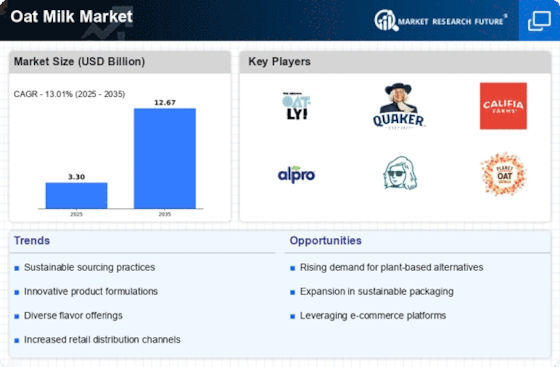
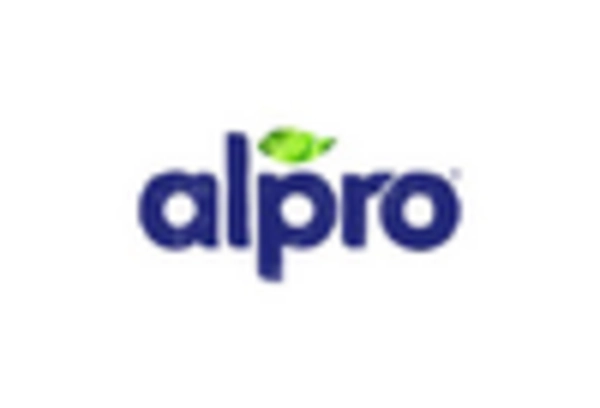
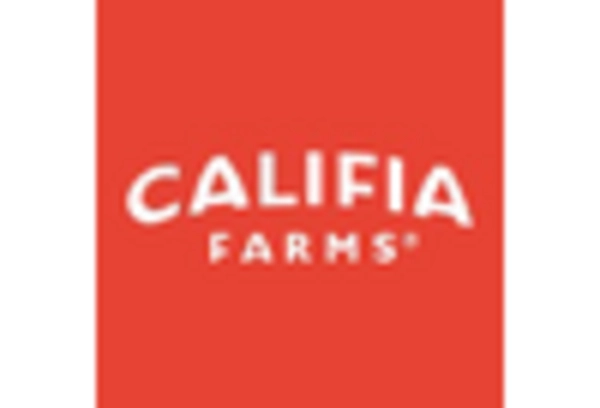


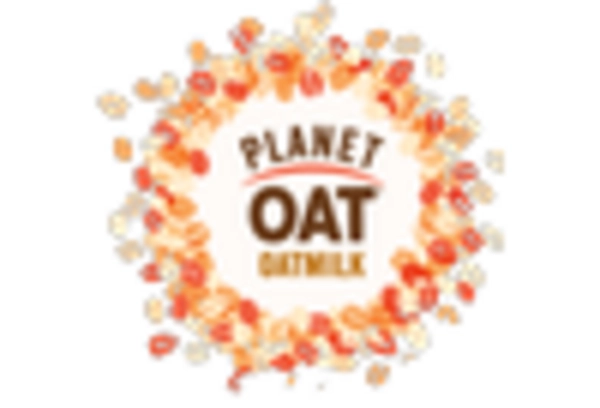
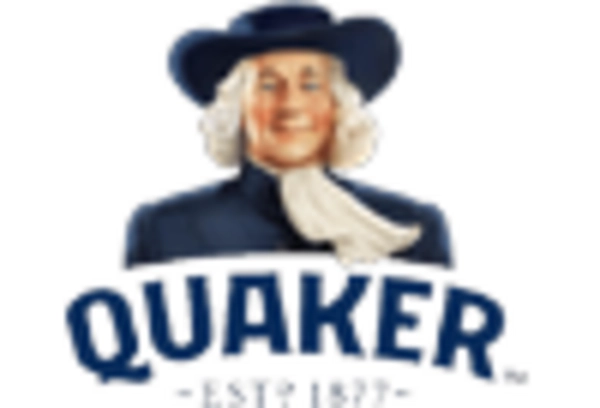










Leave a Comment